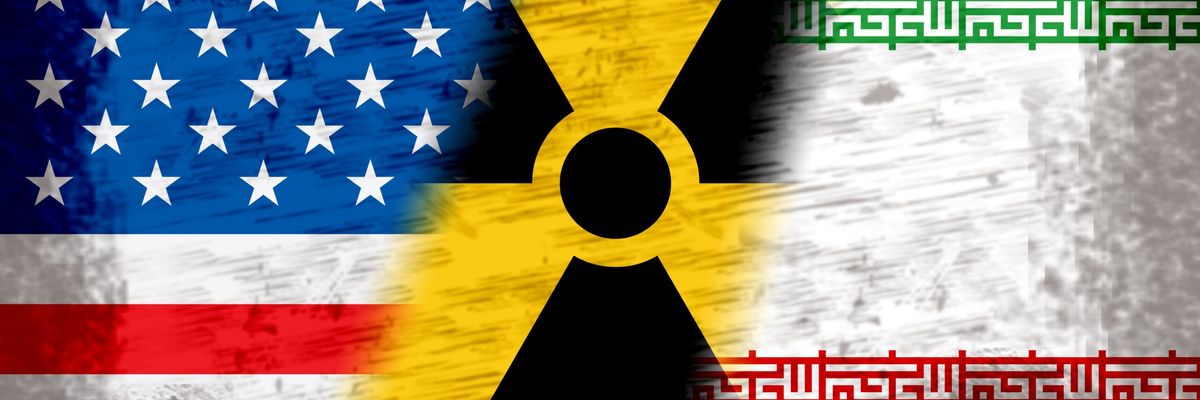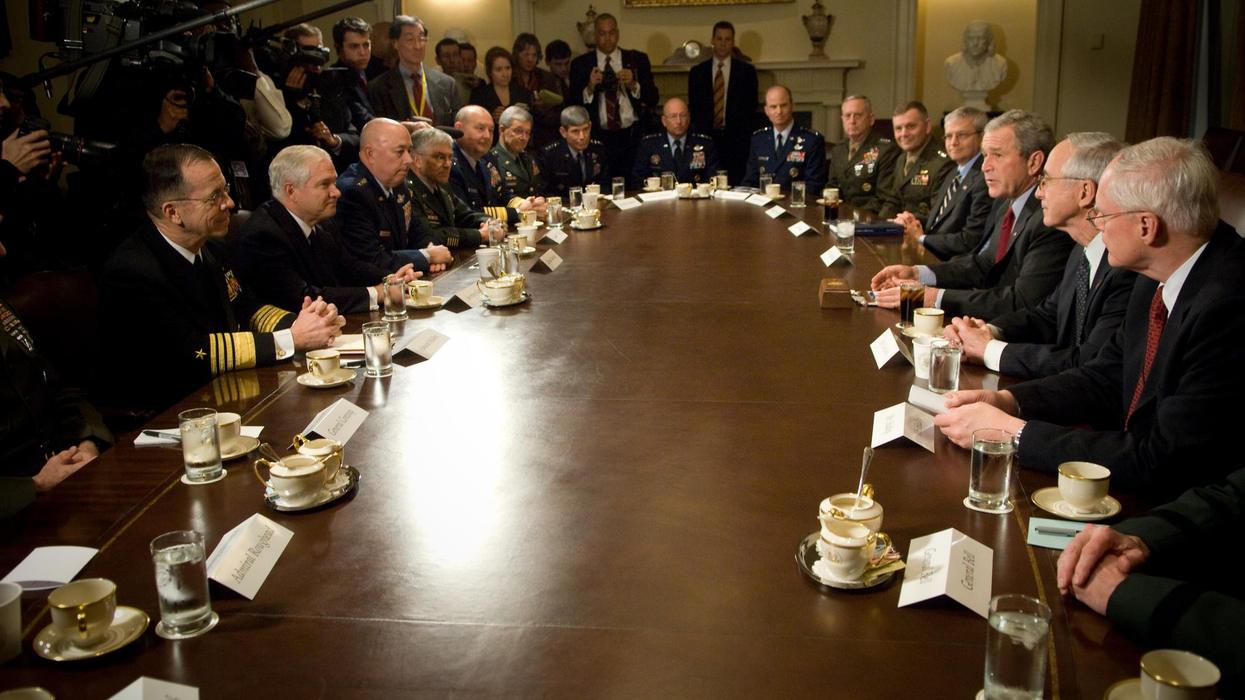Negotiations between Iran and the P5+1 for reviving the agreement for limiting Iran’s nuclear program are expected to resume on November 29.
Last year during his presidential campaign President Biden said multiple times that his administration will quickly rejoin the JCPOA, but over a year after his election, that has yet to materialize. This is mostly due to the U.S. refusing to lift all the sanctions that the Trump administration had imposed on Iran, although Iran’s internal political dynamics, and the power struggle between the administration of former President Hassan Rouhani and the hardliners, also played role.
Both Iran and the United States have “cards” to play in order to extract concessions from the other side in the upcoming negotiations.
For the Biden administration the most important card is the dire state of Iran’s economy that is reeling from the tough U.S. sanctions, as well as deep economic corruption that has emptied the national treasury, with the government running a budget shortfall of tens of billions of dollars. The government’s own statistics indicate that up to 30 million Iranians, out of a population of 85 million, live under the poverty line. Annual inflation is around 60 percent, and the rial, Iran’s official currency, continues to lose value against major foreign currencies. Thus, Iran needs relief from the U.S. sanctions, and the Biden administration is keenly aware of this.
Despite the dire state of its economy, Iran is not without any political cards. Since 2019, a year after Trump withdrew from the JCPOA, when Iran ended its “strategic patience” and began, in accordance with Article 35 of the JCPOA, distancing itself from some of its nuclear obligations, it has made significant advances in three key areas of its uranium enrichment program.
According to the latest report by the International Atomic Energy Agency, Iran has been installing and using a small number of advanced centrifuges that it is not allowed to use under the JCPOA. Iran has also produced 210 kg of uranium at 19.75 percent enrichment — which is the fuel for the Tehran Research Reactor that produces medical isotopes for about one million patients annually — and 25 kg at 60 percent. Both are at levels of enrichment higher than the average 3.65 percent allowed by the JCPOA.
Iran has also produced 200 g of uranium metal (UM) from enriched uranium at 19.75 percent level. If the UM is made of uranium enriched at 90 percent, it can be used in making the core of a nuclear weapon. But, if the enrichment level is lower, once converted to the UM, it would be very difficult, if not impossible, for Iran to convert it back to regular enriched uranium to increase its level of enrichment.
All of these gains are reversible. The advanced centrifuges can be removed and stored; the uranium with higher levels of enrichment can be stored and safeguarded by the IAEA, and any UM produced with enrichment lower than the bomb grade is in fact a good step for nuclear non-proliferation. Iran does, however, gain experience, knowledge, and insights into the elements of the three important areas, hence strengthening the indigenous nature of its nuclear program. Through worrying to the Biden administration and its European allies, the advancements do strengthen Iran’s hands in the upcoming negotiation.
Iran’s hardliners
Although they all distrust the United States, Iran’s hardliners are not unified. Their most extreme faction, but also the smallest one, for which the daily Kayhan and its managing editor Hossein Shariatmadari act as the mouthpiece, advocate leaving Nuclear Non-proliferation Treaty and ending cooperation with the IAEA. Also included in this faction is Fereydoun Abbasi Davani, Director of the Atomic Energy Organization of Iran during the Ahmadinejad administration, a retired IRGC officer, and currently a deputy in the Majles, Iran’s parliament. He escaped an assassination attempt by Israel in 2011. After Mohsen Fakhrizadeh, who led Iran’s nuclear program for 20 years, was assassinated by Israel, Abbasi Davani called for terminating any cooperation with the IAEA.
This faction believes that a Republican might win the U.S. presidential election in 2024, and will once again take the United States out of the JCPOA, even if Iran reaches an agreement with the Biden administration. Thus, this faction has concluded, there is no point in returning to the JCPOA. It also counts on China and the strategic agreement that it signed with Iran last May, as well as Iran’s admission to the Shanghai Cooperation Organization in September of which both China and Russia are members, to bail Iran out.
Iran’s new chief nuclear negotiator is Ali Bagheri Kani, its deputy foreign minister and a hardliner. He belongs to what is referred to in Iran as the beit-e rahbari or the Leader’s abode, the inner circle of Ayatollah Ali Khamenei, Iran’s Supreme Leader, and his son Mojtaba Khamenei who played a leading role in Raeisi’s rise to the presidency.
Bagheri’s brother, Mesbah-Olhoda Bagheri Kani is married to Hoda Khamenei, the Ayatollah’s daughter. Born in 1967, Bagheri received his education at Imam Sadegh University in Tehran that was founded by his late uncle, former Prime Minister Ayatollah Mohammad Reza Mahdavi Kani, and his own father, Ayatollah Mohammad Bagher Bagheri Kani who wields influence from behind the scenes. The university has been producing graduates that are ideologically loyal to Ayatollah Khamenei, with 10 of its graduates currently serving as senior officials in the Raeisi administration.
Bagheri has been a harsh critic of the JCPOA, believing that Iran gave up too much and received very little. After the JCPOA was signed in July 2015, Bagheri began attacking the agreement, and the fact that the Trump administration exited the JCPOA and re-imposed the harsh sanctions only strengthened his and the extremist block’s resolve.
The relative pragmatists among Iran’s hardliners believe that it is imperative to reach an agreement with the United States. They fear that if the sanctions are not lifted, the economy will further deteriorate, provoking the people, especially the lower class, to revolt on a scale much larger than the bloody demonstration of November 2019 over the sudden increase in the price of gasoline. But this faction is also worried that if Iran makes too many concessions, the hardliners’ social base of support, which has already shrunk considerably, will weaken further.
The government controlled daily news outlet Iran reported on November 14 that in the upcoming negotiations Bagheri will demand that Washington lift all the sanctions imposed on Iran, pay compensation for the damage that Trump’s sanctions inflicted upon Iran, and guarantee that no future U.S. administration will impose the sanctions again. Bagheri will also declare that Iran refuses to negotiate over its missile program and its Middle East policy, and that before Iran returns to its obligations, it must be able to export oil and receive the proceeds.
While this may be posturing, the fact remains that the Biden administration missed its chance to reach an agreement with the Rouhani administration last spring and, with their rigid and ideological view of the world, Iran’s hardliners will be much tougher to reach an agreement with.
Both sides need to be flexible and realistic and be prepared to make concessions. Otherwise, it will likely no longer be possible to revive the JCPOA.

















